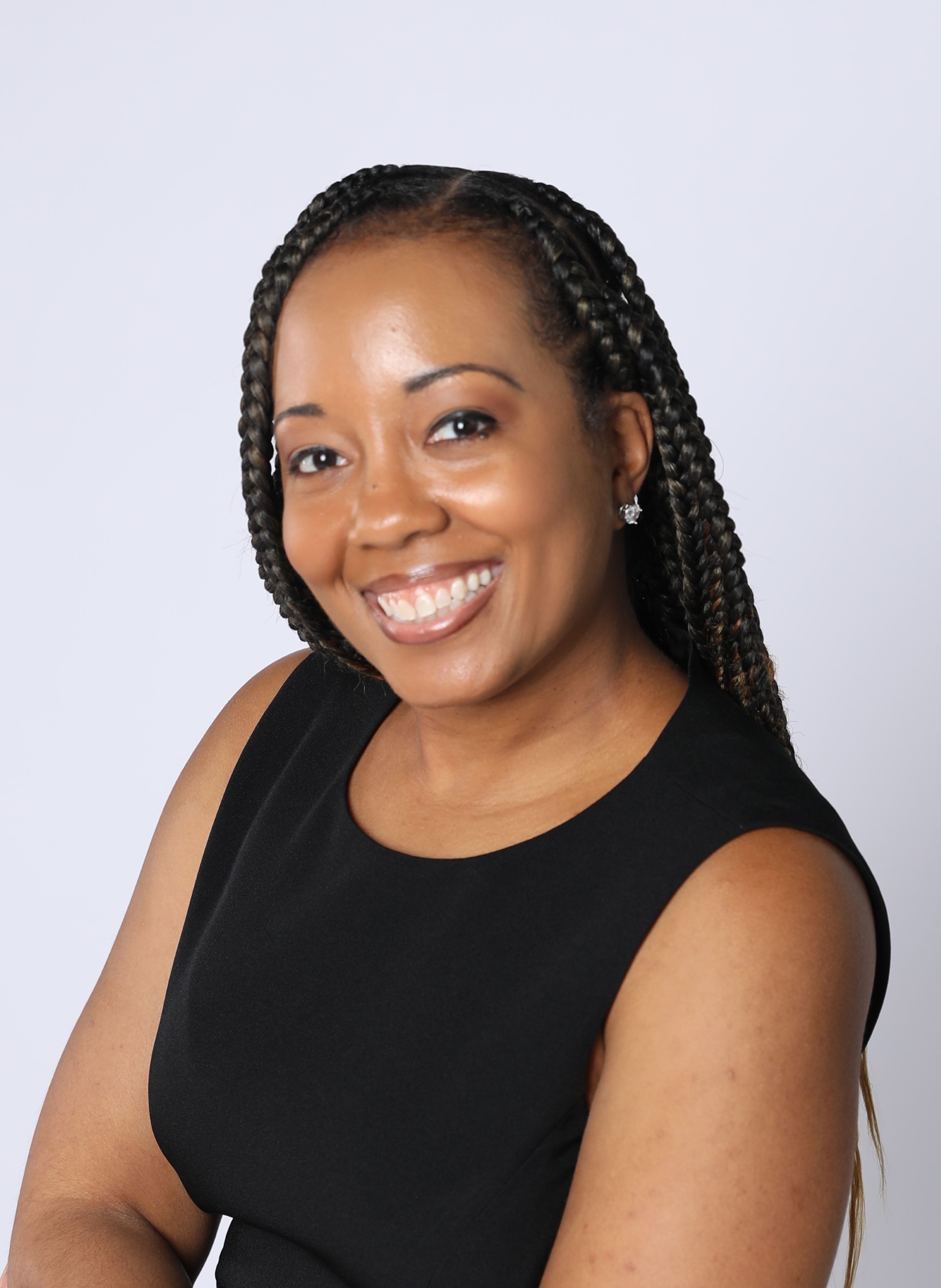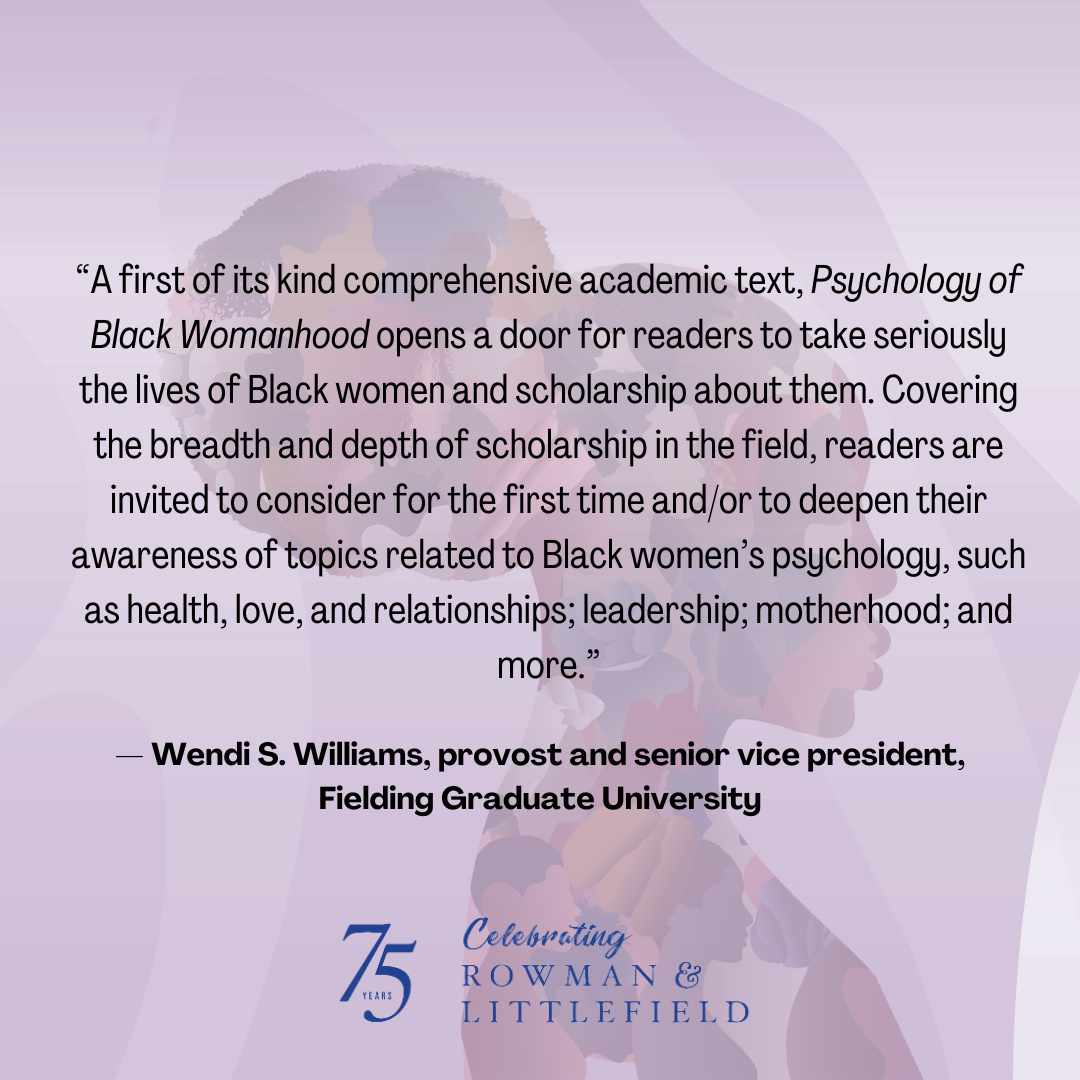Two psychology professors from Spelman College and Florida International University (FIU) have developed the first textbook to center the psychological experiences and theories of Black womanhood in their recently published work, titled The Psychology of Black Womanhood.
 Dr. Danielle Dickens, C’2009, associate professor of psychology at Spelman College, and Dr. Dionne Stephens, professor of psychology at FIU, co-wrote “the first textbook to provide an authoritative, jargon-free, affordable and holistic exploration of the sociohistorical and psychological experiences of Black girls and women in the United States, while discussing the intersection of their identities,” according to publishing company Rowman & Littlefield. The text is designed as a course textbook for undergraduate and master’s level students in psychology.
Dr. Danielle Dickens, C’2009, associate professor of psychology at Spelman College, and Dr. Dionne Stephens, professor of psychology at FIU, co-wrote “the first textbook to provide an authoritative, jargon-free, affordable and holistic exploration of the sociohistorical and psychological experiences of Black girls and women in the United States, while discussing the intersection of their identities,” according to publishing company Rowman & Littlefield. The text is designed as a course textbook for undergraduate and master’s level students in psychology.
“We grew up not seeing many images, especially positive images, of Black women or Black people in our textbooks,” said Dickens and Stephens. “There are phenomenal psychology books that focus on women of color or specifically Black women. But a textbook that centers on the psychologies of Black women changes the game. It allows for teaching and pedagogy to center on the psychology of Black women, who for so long have been invisible, despite being a major influence on U.S. history and mainstream culture.”
Dickens said the idea for the book developed during her teachings of a Psychology of Women course at Spelman, after she recognized consistent gaps in the field of psychology as it related to Black women. The overwhelmingly positive feedback she received from her students once she shared the idea for the textbook served as a strong motivator for her to bring the idea to life.
“This work reflects Spelman College’s dedication to developing intellectual, creative and ethical leaders among women of African descent. For Spelman students, among others, to read a textbook with research and images centering Black girls and women is priceless,” said Dickens and Stephens in the acknowledgements section of the textbook.
 The Psychology of Black Womanhood includes comprehensive research on Black girls and women of all ages; LGBTQ+ women; women with disabilities; and women across social and economic classes, to provide an intersectional perspective. Dickens and Stephens emphasize throughout the textbook how racism, sexism, misogynoir, classism, heterosexism, ageism, transphobia and other modes of oppression combine to repress Black women and shape their experiences.
The Psychology of Black Womanhood includes comprehensive research on Black girls and women of all ages; LGBTQ+ women; women with disabilities; and women across social and economic classes, to provide an intersectional perspective. Dickens and Stephens emphasize throughout the textbook how racism, sexism, misogynoir, classism, heterosexism, ageism, transphobia and other modes of oppression combine to repress Black women and shape their experiences.
"The inadequate attention given to the unique experiences of Black women historically has led to voids in the training and education of the next generation of educators. Further, it reinforces the importance of understanding the ways history, field values and practices, and research methodologies shape personal and public narratives about Black womanhood,” said Dickens and Stephens.
According to Dickens, The Psychology of Black Womanhood has the potential to have a lasting, positive impact on psychology by expanding the field to include a concentration that focuses on Black women.
“I hope the textbook will be a launching pad to the creation of a subfield in psychology for the psychology of Black women. I believe it will lead to an increase in Black women who want to obtain psychology degrees, Black women scholars in psychology, Black women professors and more,” said Dickens. “Outside of academia, I hope that Black women see themselves in this textbook and learn something new about themselves, whether it be about their own groups or the lives of other Black women.”
The Psychology of Black Womanhood includes sample course syllabi for in- person, asynchronous online, or synchronous online courses, videos, activities, podcasts, assignments, exams and discussion questions. In addition, the authors also included a chapter summary, research on women’s experiences across the African diaspora, glossary of key terms, careers relevant to each chapter’s topic, suggestions for further reading and organizations to promote advocacy related to textbook material. The textbook is available for purchase here.